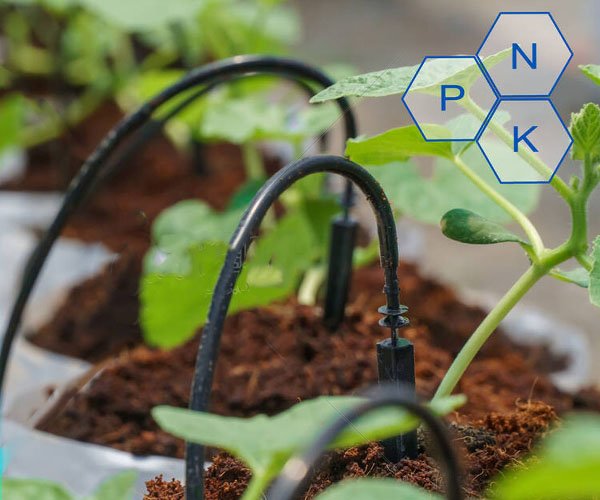Polyaspartic acid (PASP) is a synthetic water-soluble protein that naturally exists in the mucus of marine shellfish such as oysters. It is an active substance for marine shellfish to enrich nutrients and build shells. As a new type of fertilizer synergist, it can enhance the absorption of nitrogen, phosphorus, potassium and trace elements by crops. In addition, polyaspartic acid is non-toxic, harmless and completely biodegradable, which is recognized worldwide green chemicals. Research and application results at home and abroad have shown that polyaspartic acid, as a synergist for water-soluble fertilizers, has the following main functions.
1. Dispersion of polyaspartic acid
The main causes of pipeline blockage during the use of water-soluble fertilizers include precipitation caused by chemical reactions between fertilizers. Solubility reduction caused by the pH of the water body, and water-insoluble substances in fertilizers. The water-insoluble substances formed in these different ways will gradually adhere in the interior of the pipeline or at the water outlet, especially water-insoluble salts such as calcium and magnesium, thereby blocking the entire system.
As a new type of green dispersant, polyaspartic acid can prevent and alleviate the formation and aggregation of inorganic salt scale in the drip (spray) irrigation system. and it can disperse the formed scale into fine particles suspended in the water system. Thereby reduce the clogging of the system during the use of water-soluble fertilizers.
According to research, as a chelating dispersant in the water circulation system, polyaspartic acid has good chelating and dispersion.
At the same time, the scale inhibition effect of polyaspartic acid has a great relationship with the molecular weight, but has little relationship with the system temperature.
2. Corrosion inhibition
Generally, the polar groups (including N and O groups) in polyaspartic acid are adsorbed on the metal pipe, which greatly improves the activation energy of the metal ionization process. While the non-polar groups (alkyl R) oriented away from the metal to form a hydrophobic film, thereby inhibiting the corrosion of the metal pipeline by the aqueous solution. it effectively protect the drip irrigation system in the integration of water and fertilizer.so that prolong the service life of the equipment and reduce production costs.
PASP has corrosion inhibition effect on metal materials such as carbon steel, copper, brass and cupronickel in various systems. When concentration of polyaspartic acid is100mg/L, it can slow down 90% of the corrosion rate of carbon steel, thereby effectively prolonging the service life of the pipeline.
Relevant studies have found that polyaspartic acid has a good inhibitory effect on the corrosion of pipelines in water systems under different pH conditions.
- According to Benton’s research, in a corrosive salt solution medium with a pH of 4.0-6.6, the use and its salts with a molecular weight of 1000-5000 and a concentration of 25mg/L can effectively inhibit the corrosion of carbon dioxide on carbon steel corrosion.
- Kalota et al. and Silverman et al. studied the corrosion inhibition performance of polyaspartic acid on iron under different pH, temperature and moisture conditions and found that when the pH is greater than 10, polyaspartic acid has better corrosion inhibition performance.
- Mansfeld et al. found that when the pH is between 8 and 9, there will be better results.
Therefore, PASP can solve the corrosion of pipelines during the use of different formulations of water-soluble fertilizers, and is helpful for the application of fixed or semi-fixed pipeline systems.
3 The synergistic effect of polyaspartic acid
As a fertilizer synergist or nutritional enhancer, it has below functions:
- Slow release and synergistic effect
- Improvement of fertilizer utilization rate
- Improvement of crop quality
- Increase of production and income
Studies have shown that adding it to water-soluble fertilizers can prolong the persistence of fertilizers and ensure that crops absorb nutrients evenly throughout the growth process, thereby ensuring the effective use of fertilizers.
PASP can effectively activate the medium and trace elements necessary for crop growth, and can improve the absorption efficiency of macronutrients, thereby increasing the utilization rate of fertilizers. After use, it can enhance the stress resistance of crops and regulate enzymes in crops. Activity, increase yield and improve crop quality.
The activity of enzymes in the body is conducive to weight loss and efficiency.
- Xu Yanwei et al. applied polyaspartic acid-containing urea to rice and found that the persistence of the fertilizer was significantly improved. And it did not defertilize during the growing season.
- Cao Dan et al. found that the application of PASP to cultivate poplar seedlings requires an appropriate reduction in the amount of nitrogen used in order to alleviate the high nitrogen stress caused by the high nitrogen use efficiency.
4 Environmentally friendly properties
The main component of PASP is a polymer of amino acid. which can be completely degraded by microorganisms into available low-molecular amino acids, water and carbon dioxide in the environment. Someone used the OECD301A method to study the biodegradability of PASP and found that the amount of carbon dioxide released by polyaspartic acid treatment was close to that of reference glucose. PASP is a green chemical with excellent biodegradability.


